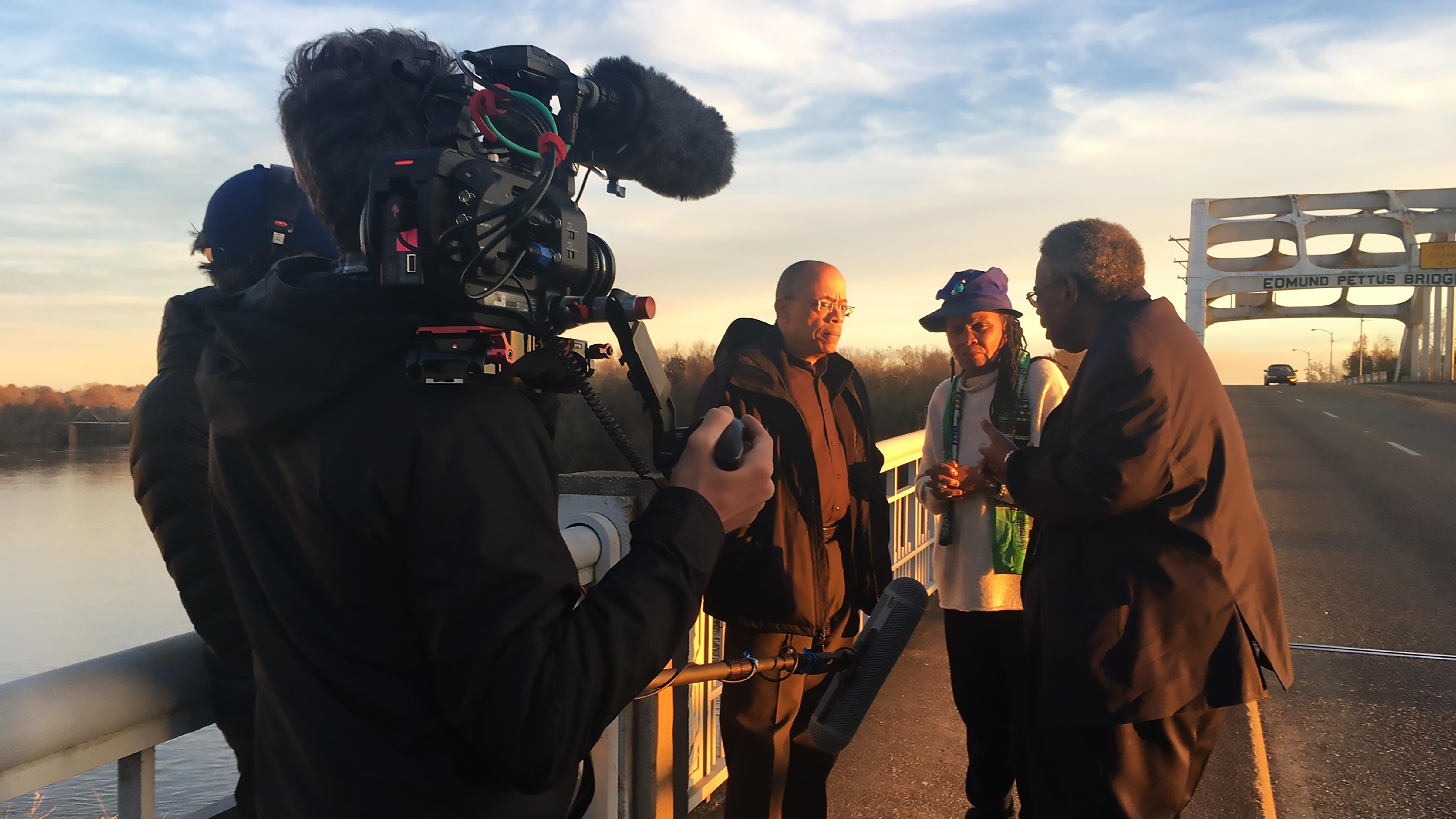What to Watch Verdict
Who We Are has over two decades of racism to unpack, so naturally a lot falls to the wayside. Still, Robinson finds a way to tell a very clear story about the structures of racism in the US and their relevance as we approach another turning point in time.
Pros
- +
🎥Robinson is a powerful speaker, empathetic and engaging all the way through
- +
🎥Brutally confrontational, asking the audience to really consider how history connects to their lives.
- +
🎥Smartly weaves personal anecdotes, archival footage and Robinson’s speech into a cohesive reflection on anti-Blackness.
Cons
- -
🎥The scope of this project is immense, meaning not every story is unpacked to its fullest potential.
- -
🎥In some moments, Robinson shelves radical perspectives to make the discussion more accessible to a conservative audience.
Who We Are is part of our SXSW 2021 coverage. You can find all of our reviews here.
Who We Are: A Chronicle of Racism in America is a huge undertaking. Interweaving archival footage, interviews, and Jeffrey Robinson’s 2018 Town Hall talk on anti-Black racism in America, this documentary sets out to cover two centuries of history. The resulting feature is brutally honest about the way America’s history has shaped its current racial politics.
As the ACLU deputy legal director, Robinson has years of experience working on criminal justice and racial reform issues. Channeling his experience into this project, Robinson’s talk reexamines racism in America by interrogating the misconception that social injustice ended with the abolition of slavery. He continuously returns to the idea of “tipping points” in history — moments where America had the potential to transform for the better. Each begins with hopeful steps forward, before completely falling back. In this, he illustrates the cyclical nature of America’s history and amplifies his own call to action, as he paints this very moment in time as another tipping point.
Early in the film, Robinson starts a fruitless conversation with a confederate flag touting conservative who utters nonsensical arguments when his views are challenged. He attests that the flag is unrelated to slavery, and goes on to defy all logic when Robinson tries to reason with him. The interaction is only a few minutes long before Robinson — who remains cool headed all the way through — sees that no progress has been made. Their conversation is moving in circles, so Robinson politely thanks the man for engaging with him and walks away.
Perhaps unintentionally, the film highlights how utterly exhausting it is to have these conversations: given the subject matter, Who We Are is emotionally draining and often hard to swallow, but that is clearly the conceit behind this project. Its brutal honesty is crucial and too often missing from education, media and general discussions.
With his talk, Robinson delves into subjects both well known and lesser explored, all in efforts to connect history to our present. Holding little back, Robinson traces history with photos of lynchings and explicit footage of police brutality. The documentary is confrontational, demanding that Americans do the bare minimum of acknowledging anti-Blackness, as it works up to prompting further action. Many of the stories told have been deliberately edited from history and Who We Are finds clever ways to reinsert their memory. Traveling the country, Robinson includes the voices of activists like Tami Sawyer, who worked to get confederate statues removed from Memphis, Tennessee. He also visits sites like Charleston’s Old Slave Mart Museum, to reveal the tangible imprints of slavery in the construction of the city. Visiting historical sites as he walks us through events like the Tulsa Massacre effectively ground the audience, making these forgotten narratives visible.
The scope of this project is immense, so it makes sense that not everything is sufficiently covered. Still, the limited exploration is especially highlighted in some singular moments where Robinson shelves radical perspectives to make topics more accessible for the audience. His discussion of police departments beginning as slave patrols walks this line, honest about the racist structures that created policing systems, with little time left to dig into their lasting impact.
Importantly, these asides often made me question who the film was being made for. Starting with the confederate flag defender who would not hear reason feels like a statement on how stubbornly dissenters could ignore the history Robinson lays out. Those aren’t the people that will seek out this documentary, but are they the audience he intends?
Who We Are spends under two hours delving into history yet there is still so much to be unpacked. A tightly composed film, this documentary is deliberate in its every choice — a necessity given the amount of ground it tries to cover. Filmmakers Emily and Sarah Kunstler, alongside Robinson himself, are strategic and rational in ways that the film's opponents can never be. Who We Are is rooted in history and logic, and you so desperately want that to matter. This film is a powerful reminder of the work needed to overcome racism and the difficulty of America’s journey forward.











